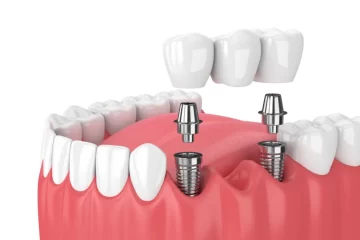What Are the Advantages of Taking Probiotics?

Health food for fitness concept with fresh fruit, vegetables, pulses, herbs, spices, nuts, grains and pulses. High in anthocyanins, antioxidants,smart carbohydrates, omega 3 fatty acids, minerals and vitamins.
A healthy body has more good bacteria than bad. Organisms that enter the body are first greeted by the gut flora, where a battle between good and bad bacteria takes place. The more good bacteria your body has, the stronger its immunity will be against any invading organisms. A daily dose of good bacteria in the form of probiotics can boost the number of good bacteria in your body and help you develop stronger immunity.
Improve insulin sensitivity
The notion that the microbiome can affect glucose metabolism has emerged in recent years, and recent studies support the use of probiotics in treating type 2 diabetes. In addition, researchers have found that people with type 2 diabetes exhibit striking changes in their intestinal flora, particularly in the proportion of Firmicutes to Bacteroidetes. It has implications for the development of diabetes because a reduction in glucose tolerance is a major risk factor for developing type 2 diabetes.
Reduce inflammatory bowel symptoms
Recent research suggests that probiotics can reduce inflammatory bowel symptoms. Inflammatory bowel disease (IBD) is often the result of an imbalance of gut microflora. It is particularly true in Crohn’s disease and ulcerative colitis. Although the underlying causes of these conditions are not yet known, factors such as genetic background, host immune response, and reduced microbial diversity are likely contributing factors. Probiotics have beneficial effects on IBD in several ways, including altering the gut microbiome and stimulating host immune responses. In addition, some strains have demonstrated anti-inflammatory properties through synergy between bacteria.
Most probiotic trials were conducted in patients with IBD, but some were small-scale and involved only a few subjects. The small sample sizes and a lack of standardization limited the ability of the authors to draw definitive conclusions. Additionally, few published clinical trials examined probiotics’ effects on the inflammatory changes observed during gastrointestinal endoscopy. Nevertheless, the results of these studies have paved the way for further research.
Help manage blood pressure.
It’s not entirely clear exactly how probiotics help manage blood pressure. They affect metabolic and hormonal processes, which may explain why they impact blood pressure. Previous studies show that probiotics lower cholesterol levels and help manage blood pressure. They also appear to help reduce insulin resistance and alter certain inflammatory biomarkers, which may help manage blood pressure. However, until more research is done, it is difficult to recommend a particular probiotic dosage.
In a study, participants who ate probiotics for a week experienced a significant reduction in their systolic blood pressure. Their levels decreased by an average of 3.56mm of mercury compared to those in the control group. Moreover, the study included more than one strain of probiotics, which lowered their BP levels even further. Ultimately, this shows that probiotics can help manage blood pressure.
Reduce mental distress
A study published in the journal Antidepressants suggests that probiotics can reduce symptoms of depression and anxiety in healthy volunteers. Although this effect may be due to the microbiome, it is still unclear how probiotics affect human cortisol levels. More rigorous clinical trials are needed to evaluate the possible adverse effects of taking probiotics. But a preliminary study suggests that probiotics may reduce symptoms and can improve mood and sleep in patients with major depression.
Despite the positive effects of probiotics, it is important to note that they do not replace other treatments for depression. If you are already taking antidepressants or contemplating doing so, you should continue taking them with probiotics. However, it is advisable to avoid abruptly discontinuing antidepressants because they can cause serious side effects. Instead, work with your healthcare provider to reduce the dosage of your current medication.
Help treat respiratory infections.
Some probiotic supplements have shown some promise in treating respiratory infections. In one study, Bifidobacterium lactis Probio-M8 was found to be effective in treating lower and upper respiratory tract infections in young children. However, the effectiveness of probiotics has been questioned. The findings indicate that the effectiveness of probiotics depends on several factors. Despite the benefits of probiotics, further studies are needed to understand how they can treat respiratory infections fully. These studies should clarify the susceptible subgroups and the benefits of probiotic supplementation. Research activities have focused on identifying specific probiotic strains with immunomodulatory properties and their interactions with dietary content. However, probiotics are not a cure for respiratory infections. It’s best to consult your doctor or pharmacist for more information.
Reduce anxiety
Recently, several meta-analyses have suggested that taking probiotics may be beneficial in treating depression and anxiety. Unfortunately, several of these studies included only healthy participants and few patients suffering from depression. However, a subgroup analysis found that probiotics significantly reduced anxiety and depression scores in depressive patients. These studies are important because they provide evidence for the therapeutic effects of probiotics on depression and anxiety. However, further studies need to be conducted to determine the clinical utility of probiotics and the underlying mechanisms of the effect on anxiety and depression.
In the current meta-analysis, researchers analyzed twenty-one studies that involved 1,503 individuals. Twenty-one of these studies included probiotics, while seven employed non-probiotic methods. Probiotics are living organisms found naturally in some foods and help balance the intestinal tract’s microbiota. They fight harmful bacteria and prevent them from settling in the gut. These effects are not temporary, however, they may last for a lifetime.









